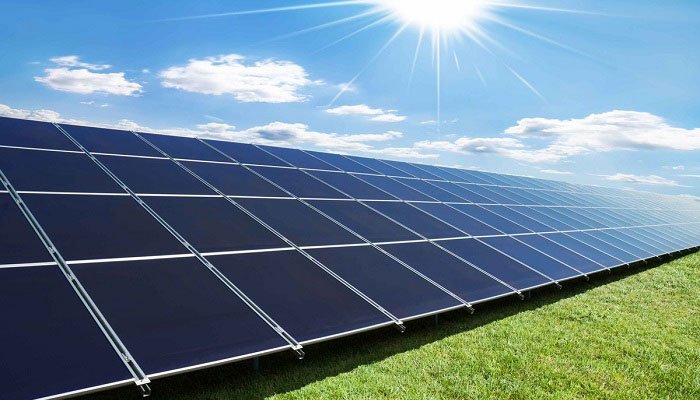As the global push for renewable energy intensifies, solar power stands out as a leading solution due to its abundance and sustainability. Solar energy systems cover up more than half of our renewable energy sources. However, maximizing the efficiency and output of solar panels has always been a challenge. Enter Artificial Intelligence (AI), which is revolutionizing the solar energy sector by enhancing the output and efficiency of solar panels in many innovative ways. This integration of artificial intelligence into solar power systems marks a significant leap towards a more sustainable and efficient energy future.
Use of Artificial Intelligence in Solar Panels
Artificial Intelligence has been a helping hand in many aspects of our lives as it is based on software solutions and tech applications. AI helps us communicate better and provides helpful information generally. AI in solar energy involves using solar power to meet the energy and power needs of modern industries.
Solar panels, also known as photovoltaic (PV) panels, are devices designed to convert sunlight into electricity. They are composed of numerous solar cells made from semiconductor materials, typically silicon. When sunlight strikes these cells, it generates an electric current by causing electrons in the material to become excited and move, a process known as the photovoltaic effect.
Benefits of AI in Solar Technology
The efficiency of a solar panel is a measure of its ability to convert sunlight into electricity. The average efficiency of commercially available solar panels in Pakistan ranges from about 15% to 22%, though global advancements in technology are continually pushing these boundaries higher. Despite these improvements, a significant portion of the sunlight’s energy remains untapped, presenting a considerable opportunity for enhancing efficiency through innovative solutions, including the application of Artificial Intelligence (AI).

1. Predictive Maintenance; Traditional maintenance routines are often reactive, addressing issues only after they occur, which can lead to downtime and loss of energy production. AI, through machine learning algorithms, can predict potential failures before they happen. By analyzing vast amounts of data from sensors embedded in solar panels, AI can identify patterns that precede equipment failures. This enables timely maintenance, reduces downtime, and ensures continuous energy production.
2. Optimized Performance through Data Analytics: AI excels in data analysis, and this capability is crucial for optimizing the performance of solar panels. Solar panels generate an immense amount of data related to their performance, including voltage, current, temperature, and irradiance. AI algorithms analyze this data in real-time to detect anomalies, assess performance, and suggest adjustments. For instance, AI can dynamically adjust the angle of solar panels to capture maximum sunlight throughout the day, significantly boosting their efficiency.
3. Enhanced Energy Storage Management; Energy storage is another critical area where AI is making a substantial impact. The intermittent nature of solar power requires efficient storage solutions to ensure a stable energy supply. AI-driven energy management systems can optimize the charge and discharge cycles of batteries, ensuring they operate efficiently and prolonging their lifespan. By forecasting energy demand and supply, AI helps in balancing the grid and preventing energy wastage, making solar power more reliable.
4. Weather Forecasting and Solar Radiation Prediction; The efficiency of solar panels is heavily influenced by weather conditions. AI-powered weather forecasting models can predict short-term and long-term weather patterns with high accuracy. These predictions allow solar energy systems to adjust their operations proactively. For example, during cloudy days, the system can anticipate reduced solar radiation and optimize energy storage and usage accordingly. Accurate solar radiation prediction also helps in better planning and deployment of solar panels.

5. Intelligent Grid Integration; Integrating solar power into the existing grid infrastructure poses challenges due to its variable nature. AI facilitates smoother grid integration by predicting power generation and demand patterns. This intelligence enables better load balancing and reduces the need for backup power from non-renewable sources. Moreover, AI can help in creating smart grids that autonomously manage and distribute solar power, enhancing overall grid efficiency.
6. Advanced Materials and Design Optimization; AI is also instrumental in the research and development of advanced materials and designs for solar panels. By simulating thousands of material combinations and configurations, AI can identify the most efficient and cost-effective solutions. This accelerates the development of next-generation solar panels with higher efficiency and durability.
In a word, AI is not just enhancing the output of solar panels but also driving the entire renewable energy sector forward. As AI technology continues to evolve, its synergy with solar energy promises even greater advancements, making clean energy more accessible and reliable for everyone.
By
Editorial, Infocus


